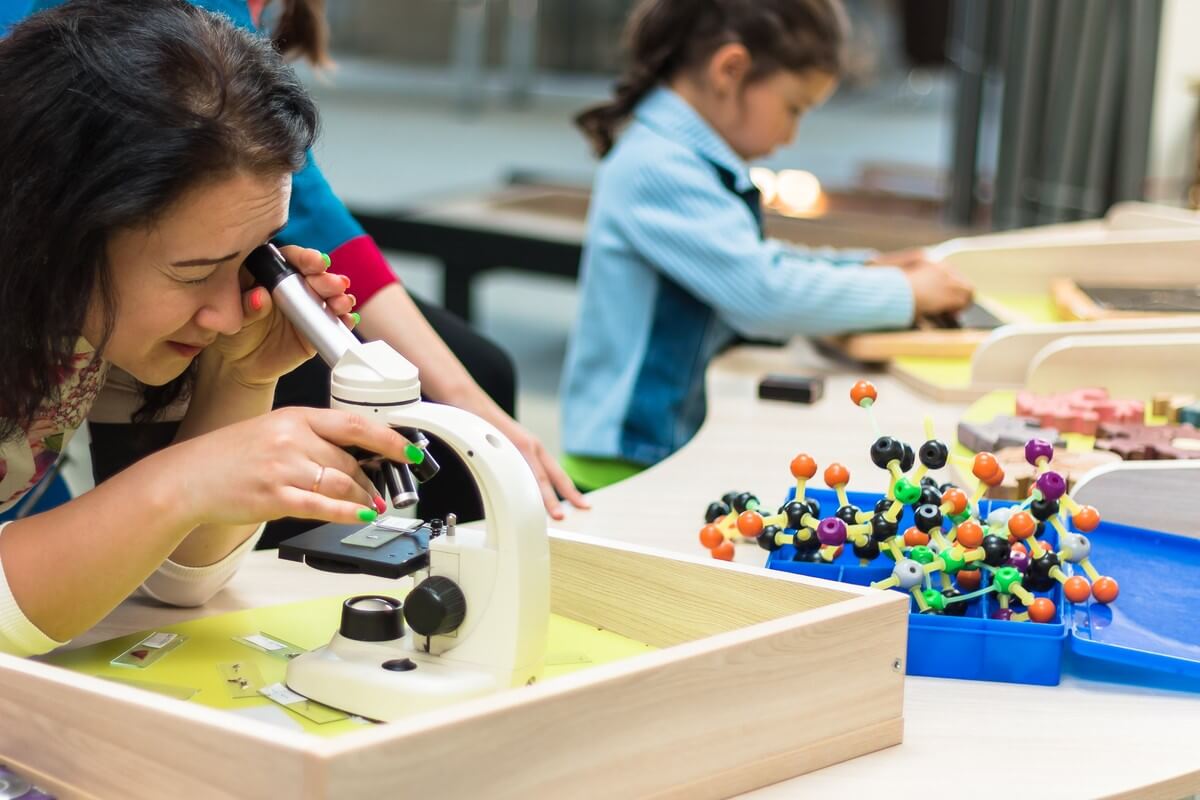STEM (Science, Technology, Engineering, and Mathematics) education has emerged as a driving force in education, and its relevance to developing 21st-century skills is undeniable.
According to the UNESCO report, it is estimated that by the year 2025, there will be a global demand for 12 million professionals in STEM-related fields. This statistic highlights the importance of preparing the new generations with solid skills in these areas.
In the digital and technological age in which we live, 21st-century skills such as creativity, critical thinking, problem-solving, collaboration, and communication have become indispensable. These skills are not only necessary in the workplace but also in everyday life, as they allow us to adapt to the rapid changes and challenges we face.

STEM education is presented as an integrative approach that effectively promotes the development of these skills. By combining science, technology, engineering, and mathematics, STEM education fosters interdisciplinary learning that reflects the complex realities of today’s world.
In this article, Blue Bells Public School will explore how this type of education becomes a bridge to the development of 21st-century skills. We will examine the tangible benefits it offers, both personally and professionally, and analyse its impact on the future of society.
Contents
Defining STEM Education
STEM education is a pedagogical approach that integrates the fields of Science, Technology, Engineering and Mathematics in the teaching and learning process. Unlike traditional education, which tends to treat these disciplines in isolation, STEM education seeks to create connections between them, fostering an interdisciplinary and holistic approach.
Science focuses on the exploration and discovery of new knowledge through observation, experimentation, and analysis. The technology focuses on the practical application of scientific knowledge to develop innovative solutions and useful tools in our daily lives.
Engineering deals with design, construction, and problem-solving using scientific and technological principles. Finally, Mathematics provides the language and tools necessary for logical reasoning, modelling, and solving quantitative problems.
An important aspect of this holistic education is the hands-on, project-based approach. Students not only acquire theoretical knowledge but also participate in practical activities that challenge them to apply their knowledge in real situations. This allows them to develop practical skills, such as critical thinking and problem-solving while working on real or simulated projects.
Additionally, STEM education is not limited solely to classroom instruction but is also extended through extracurricular activities, community programmes, and the use of educational technology. These various learning modalities enrich the student experience and provide them with opportunities to explore and develop their skills more broadly.
STEM Education as a Bridge to 21st-Century Skills
STEM education naturally fosters the development of key skills needed in today’s and tomorrow’s worlds.
Fostering problem-solving and critical thinking
Problem-solving and critical thinking are essential skills in the 21st century. STEM education provides students with the opportunity to face complex challenges, where they must analyse, evaluate, and propose solutions based on logical and scientific reasoning.
Through hands-on projects and activities, students learn to approach problems systematically, experiment with different approaches, and make informed decisions.
Fostering creativity and innovation
Creativity is essential for the development of new ideas, the generation of original solutions, and innovation. STEM education provides an environment conducive to fostering creativity by challenging students to find unconventional ways to approach problems and develop innovative projects.
Through experimentation, exploration, and project design, students learn to think creatively and develop their ability to generate unique ideas.
Promotion of collaboration and communication
Collaboration and effective communication are essential skills in an increasingly interconnected world. STEM education encourages teamwork and collaboration among students since many of these projects require the participation and contribution of different perspectives and skills.
Additionally, students learn to communicate their ideas and findings clearly and effectively, both orally and in writing. This promotes presentation, argumentation, and negotiation skills, which are valuable in academic and professional settings.
Promotion of STEM Education and its Impact on the Future
Given the importance of STEM education, significant momentum has been generated globally to promote and strengthen this educational area. Various government initiatives and programmes, as well as efforts by educational organisations and the private sector, have focused on promoting it.
Government Policies and Programmes
Many governments around the world have recognised the need to invest in STEM education. They have implemented policies and programmes that seek to boost access and quality of education in schools.
These initiatives include the training of teachers in STEM methodologies, the development of updated and relevant curricula, and the creation of specialised centres and laboratories for this type of teaching.
Public-Private Partnership Initiatives
The private sector has also played a key role in driving STEM education forward. Many companies and industries have recognised the importance of having STEM-trained professionals and have invested in educational programmes to foster student interest and involvement in these areas.
These initiatives range from scholarships and internships to mentoring programmes and direct collaboration with schools and universities. Collaboration between the public and private sectors is essential to bring STEM education closer to the reality of the world of work and ensure that students develop relevant skills and competencies for the future.
Education is crucial to training agents of change. The application of STEM education enhances skills necessary in today’s world. By investing in the education of young people, students are prepared to face challenges and take advantage of emerging opportunities in fields such as technology and innovation.
Various organisations empower young people, providing them with the skills and knowledge to become leaders and catalysts of change in society.




